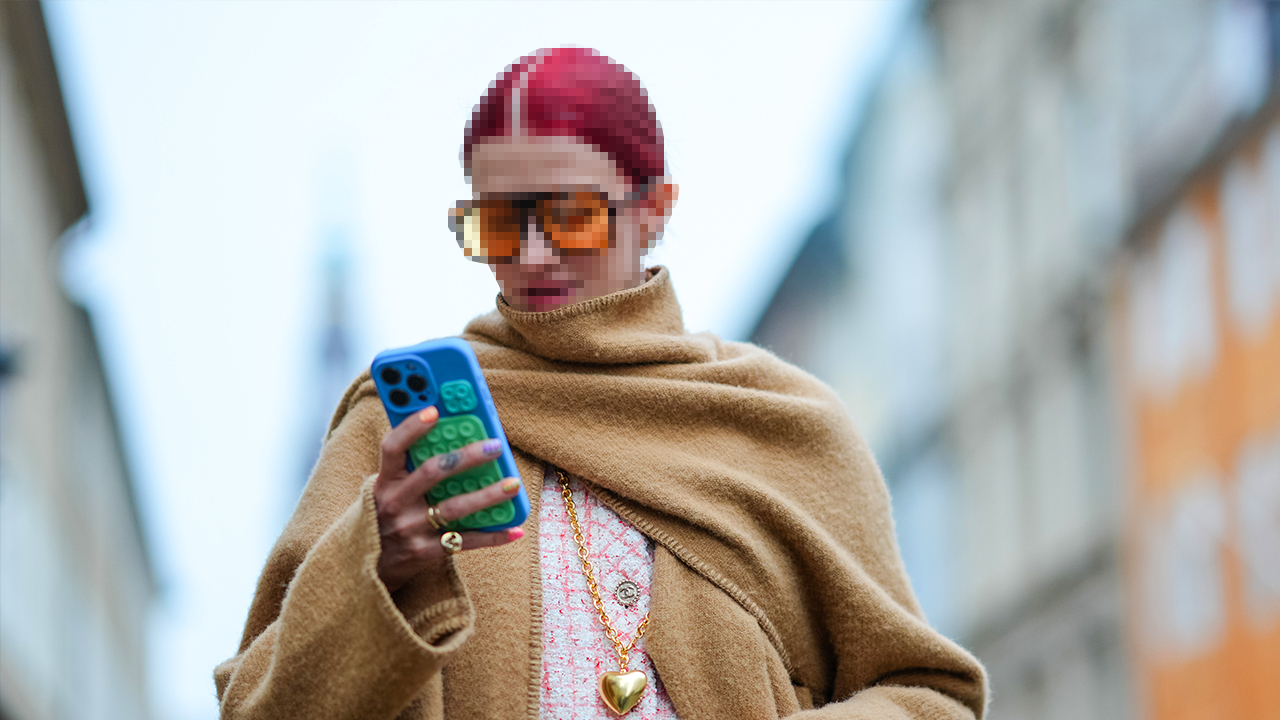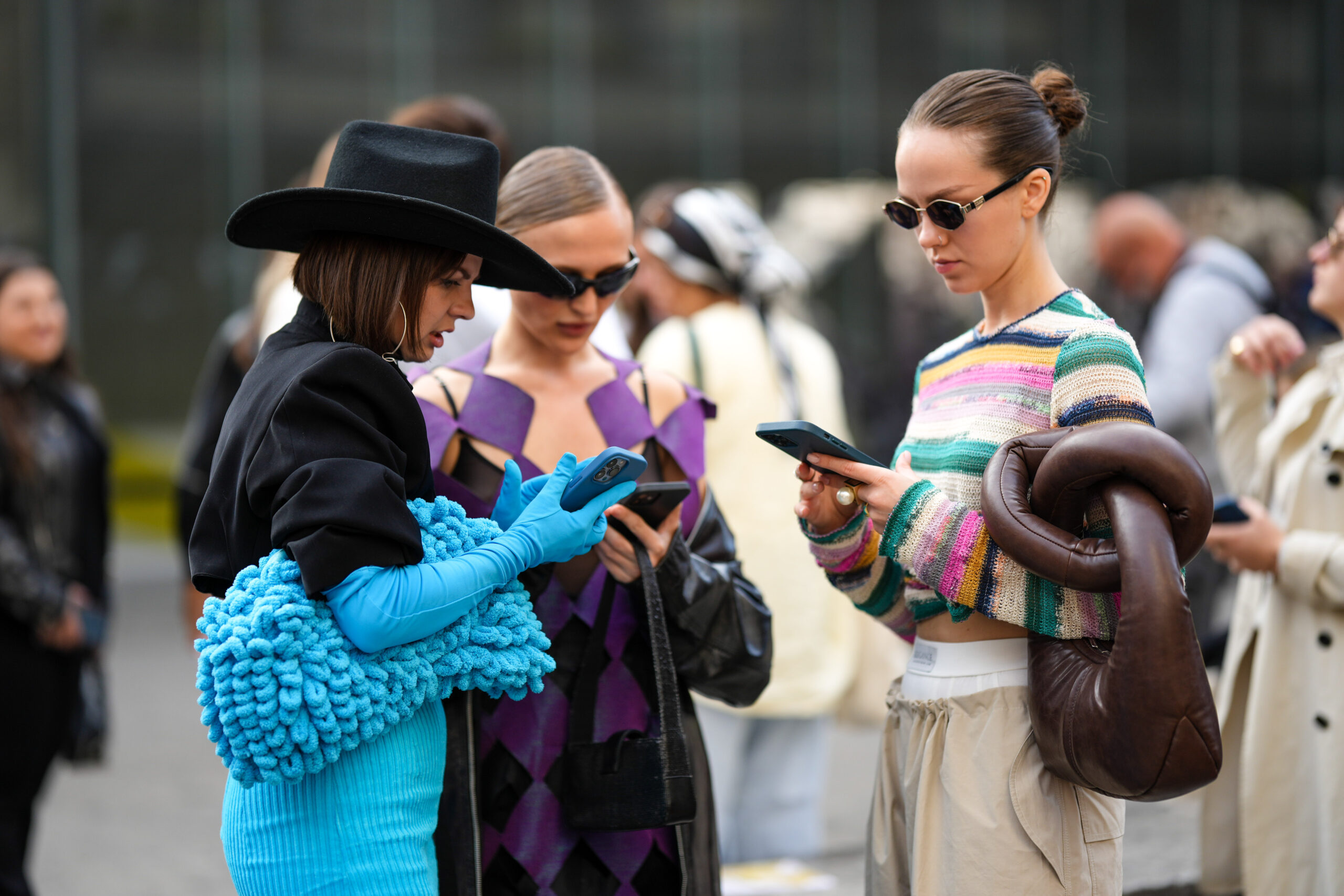News feed

I’ve always pitied the unlucky person who’ll be tasked with sorting through my things when I die. I like stuff and am too misguidedly sentimental to clear much out. But that’s just my physical property. In 2024, phones are practically a bodily appendage, a space where we carve out another space to occupy and accumulate. And the ease with which we can like, pin, save, and screenshot makes digital hoarders of us all. While we joke about our friends promptly deleting our browsing histories upon our death, it seems we’ve reached the point in our digital dependence where processes around our ‘estates’ need to extend to our online lives, too. Realistically, we probably reached that point long ago.
According to author Carl Öhman, how we navigate our digital remains is one of the most important issues of the 21st century. As he notes in his book, The Afterlife of Data, the data we produce today is arguably the largest archive of human behaviour ever assembled in the history of our species. At this moment in time, there are over 5.3 billion internet users and counting. Couple that with the average of 166,000 people dying every day, and you can only imagine the mountains of data left in their wake. On Facebook alone, it’s been projected that by 2060, the dead will outnumber the living.
For the average user, posting morning coffees, sharing memes and browsing the occasional shopping site might seem like an innocuous legacy to leave behind, but even if it is our intention, the reality is that we’re not just documenting memories and keeping up with friends. We’re using a service. And, in turn, that service is using us. With every search and click, we offer more and more to these platforms. Leaving behind a trail of activity—the accumulation of which forms a living, breathing data identity that doesn’t necessarily die with our physical bodies and still holds immense value to many stakeholders long after we’re gone.
In fact, the internet is a place where the living and dead already coexist. Those helpful Yelp reviews, saved recipes, articles, or movie explainers may have been crafted by people whose digital footprints have outlasted their biology. While it doesn’t seem like any harm could come from maintaining these accounts and their enshrined activity, unattended accounts can become vulnerable to all sorts of scams.
For Akin Olla, a contributing writer at The Guardian, profiles from lost loved ones have been the target of bots and hackers.
“I realised that my best friend, Govinda, who had been dead for a year at that point, had changed his profile picture to that of an older white man,” he tells me. “I messaged him, and he responded, pretending to be my friend, but it was obviously a scammer or a bot. I offered to buy the account, but they stopped responding.” From there, another deceased friend’s account reanimated to spam him and shill weight loss products.
“I was surprised by how prolific the problem was and how few accounts had been turned into ‘memorial’ accounts on Facebook,” he says. “Tens of millions of dead accounts, but only a few hundred thousand memorial accounts.”
In response to this looming issue, Apple introduced legacy contacts at the end of 2021, a feature that allows you to choose one or more people to access and manage your account after your death. Facebook and other sites have followed suit, and users with the right documentation can submit a request for Meta to remove accounts or ‘memorialise’ them—a process that converts the profile to a place for friends and family to visit and interact with. Naturally, there are concerns around this, as there is no one-size-fits-all approach to account access that works for everyone. In fact, in some cases, it can have dire consequences.

As Elaine Kasket, a cyberpsychologist and author of Reboot: Reclaiming Your Life in a Tech-Obsessed World, warns, artificial intelligence is also reshaping what it means to die.
“People can easily impersonate you and easily audio chatbot you these days,” says Kasket. “We’re even getting to the point where one’s bank could get fooled, and enterprising criminals could utilise these kinds of techniques before the family has even had a chance to deal with the digital portions of a person’s life or estate.”
In Hollywood, the dead are already being digitally resurrected with growing frequency. From deepfakes of Audrey Hepburn employed by Galaxy Chocolate in ads two decades after her death to filmmakers relying on AI to generate additional content for the late Anthony Bourdain’s uncompleted Roadrunner documentary, the dead—or their digital footprints, we should say—are being put to work more than ever before. All it takes is some preexisting data, which, thanks to prolific social media use, 62 percent of the world’s population has to offer. And because the dead aren’t going to put up a fight, and little legislation exists to protect them, the only consent that comes into play is the right that they waived when they released public footage.
As Kasket explains, this privacy doesn’t just extend to the dead, either, but also to the living people who made up their networks.
“If you inherit an iPhone, and that person had an assigned legacy contact on it, that person now gets access to emails, messages and more with all the living persons with whom they’ve communicated—each of whom signed up to that platform with their own expectations of privacy—and you just open it all up? I think that has a really chilling effect, particularly as there is no context, and trying to make accurate sense of all this ambiguous information that’s been dropped into your lap is impossible.”
You might realise that the people you love had whole other lives or parts of them that you weren’t privy to—and you were never supposed to be privy to. Sure, it might not matter to the dead, but numerous parties can be affected by this unfettered access, and it adds a layer to grief that clouds the already difficult process.
So, why don’t Facebook, Instagram and other companies simply delete these accounts?
“If you think the dead aren’t of any use to tech companies, you’re wrong because what these companies can do is use the data of the dead to make inferences about the living,” says Kasket. “The dead still remain within their social networks, and, in large part, their data is still connected to the data of the living. Through messages, likes, and other interactions, it can tell you a lot of valuable information that companies can utilise.”
This is the insidious nature of technology’s surveillance capitalist model. And as Kasket affirms, it might sound like an outlandish conspiracy theory, but it’s the actual economic system in which we exist, and have existed in, for years.
Our online identities are an amalgam of the information we input into services. Through endless DMs, emails, searches, profiles and shopping habits—all of which are digitally surveilled and tracked for the benefit of tech companies—we’re not just accessing the internet, we’re informing it. And by mindlessly checking off those terms and conditions, we’re relinquishing ownership of all of it.
“Many people would believe that if they were to pass on, their loved ones could simply show up at an Apple Genius bar with a death certificate and access the lot. But that’s not quite how it works,” explains Kasket. “The processes around the inheritance of physical assets are far off from the rules around our digital legacies because, in essence, we don’t really own them, and we never did,” she says, using the example of music and other content. “When we purchase a song, we’re not buying the license to the song. We’re obtaining the right to listen to it for a window of time. This ownership is not [transferrable] and certainly doesn’t get passed on to your next of kin.”
But accounts aren’t just automatically deleted upon death, and for some, retention is the preference. Despite his experiences, Olla, like so many others like him, has also taken comfort in the enduring online presence of his friends.
“I’ve saved a bunch of messages from Govinda before he died and have enjoyed dipping back into old conversations with him. It is nice to be able to reconnect in a way,” he says. “It also helps me understand myself better by looking at how I would interact with people close to me in the past. It gives context to who I am today.”
And Olla is certainly not alone in this. When Elon Musk announced that platform X (formerly known as Twitter) would be purging accounts that had remained idle for several years, a mass uproar was heard by those concerned about losing their connections to deceased loved ones. So much so that the company paused their plans.
“It’s almost like you never have to say goodbye to your loved one,” says Kasket. “Like [technology] has solved grief, and you don’t have to have the anxiety of losing hold of this stuff about this person, or they can somehow seem to continue being there.” Humans have long pursued the preservation of the dead through various methods, but she also resolves that death is an unavoidable part of life, and digitally entombing everyone in these ways isn’t always healthy. More than that, it’s simply not feasible.
Two billion people are projected to die in the next thirty years. Culling the enormous volume of data is not only inevitable but necessary. It costs a lot to retain data. Not just financially but also in terms of storing information on servers, which factors in environmental resources. And these companies aren’t storing it all out of the goodness of their hearts. As much as it would seem logical for algorithms to trawl through inactive accounts and sweep them off the face of our digital planes, they don’t. Why? Because there is value in their content, even long after a user has posted their last photo dump. After all, the dead may not click on ads, but the living people who care about them just might.
And therein potentially lies one of the greatest moral dilemmas of our generation: choosing whose inactive profiles are scrapped.
As George Orwell warns in his dystopian classic 1984,’ he who controls the past controls the future.’ If it is these tech giants that are to determine whose digital personhoods are ushered onto lifeboats, how will they move forward? And what will we lose in their decisions? Just as history has favoured documenting the rich and powerful while unmarked graves of the lesser known widdle away uncared for, will we be compelled only to preserve the data of the elite few? If it’s solely up to businesses, then I think it’s safe to assume so.

Kasket urges that the matter is of grave philosophical debate but laments that unanimous decisions are likely not going to be met.
“If we have to begin offloading peoples’ digital footprints, how will we decide?” she asks. “It becomes not a question of ‘who can we risk letting go of?’ but rather ‘who is important enough to be remembered?’”
While this may sound like a dystopian hellscape, Öhman actually has hopes for where this growing concern may take us. As it stands, the power in this conundrum lies with a select few tech giants. They alone can make the call. Awareness is growing, though, and the compulsion to fight for the rights of the dead and the use of their data could bring about something that has otherwise felt impossible to picture: the democratisation of the web, free from the beast of commercial interest.
For us day-to-day users, the problem lies in wrapping our heads around the issue’s gravity and future causations when our present interactions feel so passive. We laugh about the alarming ways we are served ads or headlines pointing to enormous data breaches and the sophistication of modern tech scams but continue sharing sunset snaps and watching ‘Get Ready With Me’ videos as if we’re not a part of it all.
Because death and bereavement are so heterogeneous, Kasket recognises that there is no right or wrong way to handle your data. If it works best for some to retain these spaces as an outlet for grief, then so be it. Just as you can leave as little or as much as you want in the real world, the sum of your digital estate is entirely up to you. She just appeals to us all to be more mindful of what we’re leaving behind and the ways in which it can be used after we’re gone. Enabling legacy contacts is a great start, but Kasket also advises talking more openly to our loved ones about what we hope to do with our digital ashes.
After his experiences with the ghost accounts of his friends, Olla advocates for reform to legally acknowledge social networks as the public institutions that they are.
“Social media addiction is a real threat to our lives, and as long as platforms are focused on making a profit from our diminishing attention spans, memorial accounts will play a role in keeping users hooked to social media products… I just don’t believe that companies have enough self-interest in managing this problem,” he says. “Social media is driven by engagement-driven profit, and ghost accounts don’t necessarily harm that.”
THIS FEATURE IS PUBLISHED IN THE 17TH EDITION OF GRAZIA INTERNATIONAL. ORDER YOUR COPY HERE.








